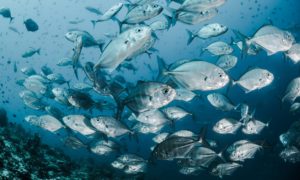Update
Global Response to Overfishing and the Role of Geneva
Overfishing negatively impacts sustainable fisheries, livelihood and world fish stocks. These unsustainable practices threaten local biodiversity and food security in many places around the world. Discover what organizations in Geneva and beyond are doing to address the issue at the global level.
The Overfishing Crisis
More than 820 million people depend on fisheries and aquaculture for food, nutrition, and income (FAO, n.d.). But the ability of our fisheries to provide jobs and nutrition is being threatened by an unprecedented crisis of overfishing and improper resource management. Nearly 90% of global marine fish stocks are fully exploited, overexploited, or depleted (FAO, 2018). Overfishing is closely tied to bycatch — the capture of unwanted sea life while fishing for a different species — which is also serious marine threat.
Some forms of fisheries subsidies contribute to this detrimental impact. Fishing subsidies are estimated to be as high as $35 billion worldwide, of which $22 billion directly contributes to overfishing (Sumaila et al., 2019). Subsidies also foster inequality, as they disproportionately fund big business rather than small-scale and artisanal fisheries. Regulating these harmful subsidies can therefore assist in reducing unfair competition in accessing fisheries resources at sea, whilst at the same time seeking to safeguard fisheries resources, livelihoods and ecosystems.
- Overfishing | WWF
- What is a fisheries subsidy? | FAO
- Responsible fishing | Oceana
- The State of Mediterranean and Black Sea Fisheries 2023 | FAO | 5 December 2023
- Fisheries Subsidies Agreement: What’s the Big Deal? | Pew Charitable Trust | 10 May 2023
- Overfishing is a social injustice. To end it, we need to eliminate harmful fisheries subsidies. | Peter Thomson (UN Special Envoy for the Ocean) | 21 November 2020
- Fisheries Subsidies Video Series | IISD | 27 May 2020
- Unsustainable fishing and hunting for bushmeat driving iconic species to extinction – IUCN Red List | IUCN | 18 July 2019
- 90% of fish stocks are used up – fisheries subsidies must stop emptying the ocean | Mukhisa Kituyi (UNCTAD Secretary-General) & Peter Thomson (UN Special Envoy for the Ocean) | 13 July 2018
- The state of world fisheries and aquaculture | FAO | 2018
- Regulating fisheries subsidies must be an integral part of the implementation of the 2030 sustainable development agenda | UNCTAD, FAO & UNEP | July 2016
- Reforming fisheries subsidies | WWF | November 2011
International Cooperation to Address Overfishing
Through the adoption of the Sustainable Development Goals (SDGs), governments around the world have agreed that conserving and sustainably using the oceans, seas and marine resources is essential for sustainable development. In particular, target 14.6 acknowledges the detrimental effect of harmful subsidies and the need to eliminate them to achieve a sustainable blue economy.
Goal 14. Conserve and sustainably use the oceans, seas and marine resources for sustainable development
Target 14.6. By 2020, prohibit certain forms of fisheries subsidies which contribute to overcapacity and overfishing, eliminate subsidies that contribute to illegal, unreported and unregulated fishing and refrain from introducing new such subsidies, recognizing that appropriate and effective special and differential treatment for developing and least developed countries should be an integral part of the World Trade Organization fisheries subsidies negotiation
WTO Fisheries Subsidies Negotiations
At the Doha Ministerial Conference in 2001, negotiations on fisheries subsidies at the WTO were launched with a mandate to clarify and improve existing WTO rules. The adoption of the SDGs in 2015 and of a negotiating mandate in 2017 gave renewed urgency to the discussions, and left the WTO with the task of securing an agreement by 2020 on disciplines to eliminate subsidies for illegal, unreported and unregulated fishing and to prohibit subsidies that contribute to overcapacity and overfishing, with special and differential treatment for developing and least developed countries.
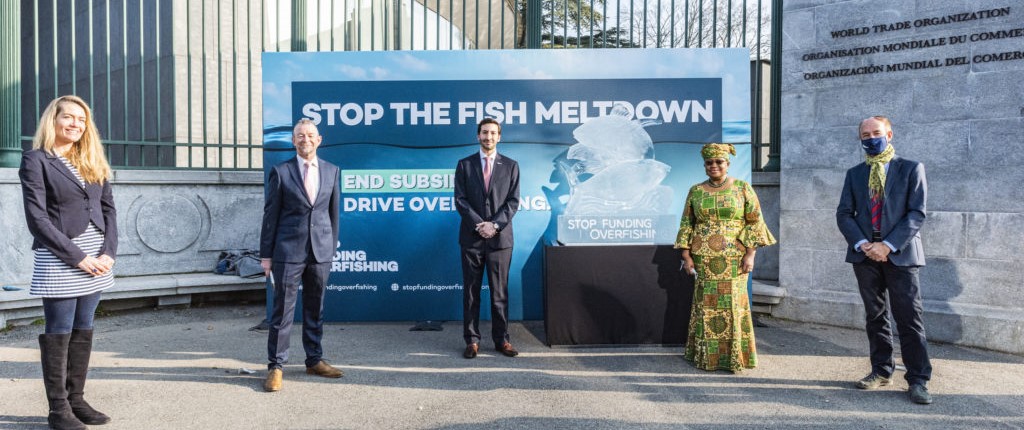
On the occasion of newly appointed Director-General Ngozi Okonjo-Iweala’s term on 1 March 2021, the Stop Funding Overfishing campaign positioned an ice sculpture of a fish in front of the WTO’s HQ.
The chair of the fisheries subsidies negotiations, Ambassador Santiago Wills of Colombia, introduced on 30 June a revised draft text. The changes proposed in the text are intended to point members towards the convergence needed to successfully conclude negotiations. A virtual meeting of ministers took place on 15 July 2021 to advance negotiations on curbing harmful fisheries subsidies. Although negotiations were expected to reach a conclusion by the end of 2021, the postponement of the 12th Ministerial Conference (MC12) – originally scheduled to take place in Geneva in December 2021 – has pushed these hopes back. On 24 November 2021, Amb. Santiago Wills presented a new draft agreement for Members’ consideration. According to the chair, “the current draft reflects an honest attempt to find a balance in members’ positions and I think it is the most likely way we can build consensus, without undermining our sustainability objective, and successfully conclude more than 20 years of negotiations”.
In Focus: A Draft WTO Agreement to Curb Harmful Fisheries Subsidies, with Alice Tipping, Lead, Sustainable Trade and Fisheries Subsidies at the International Institute for Sustainable Development (IISD).
After more than twenty years of negotiations, WTO members reached an agreement at the 12th WTO Ministerial Conference (MC12) in Geneva in June 2022. Under this new treaty, subsidies for vessels and operators engaged in illegal, unreported, or unregulated (IUU) fishing are prohibited. The agreement further bans support for fishing in overfished stocks and for fishing in unregulated high seas. Provisions on special and differential treatment are provided to allow flexibility for developing countries. Ahead of MC12, a group of 182 organizations delivered a joint statement to WTO DG Ngozi Okonjo-Iweala, calling for MC12 to mark the end of subsidies that drive overfishing.
The @WTO is back! Among many amazing deliverables, and after 21 years, members concluded the multilateral Agreement on Fisheries Subsidies 🐠🐟 during #MC12. Great contribution to Ocean sustainability, fisheries, and the livelihoods of millions of people. Historic. Well done! pic.twitter.com/ng2EgWUklM
— Santiago Wills (@WillsSantiago) June 17, 2022
Since the adoption of the agreement, WTO Members met regularly under the format of “Fish Weeks” — which focused, among other things, on advancing on the content of the second wave of fisheries subsidies negotiations, focused on curbing subsidies that contribute to overcapacity and overfishing, to take place in December 2023. Members are seeking to conclude an agreement at the WTO 13th Ministerial Conference (MC13) scheduled for February 2024. At the fifth Fish Week, hosted from 18 to 22 September 2023, the Chair of the Process Ambassador Einar Gunnarsson of Iceland introduced a draft text on curbing subsidies contributing to overcapacity and overfishing drawing from previous negotiating texts and proposals.
Status of Acceptance of the Agreement on Fisheries Subsidies
At the 12th Ministerial Conference in June 2022, WTO members adopted the Agreement on Fisheries Subsidies. For the Agreement to enter into force, two-thirds of WTO members must formally accept the Protocol of the Agreement on Fisheries Subsidies by depositing an “instrument of acceptance” with the WTO.
As of March 2024, 72 WTO members formally accepted the Protocol of the Agreement on Fisheries Subsidies:
- Switzerland, 20 January 2023
- Singapore, 10 February 2023
- Seychelles, 10 March 2023
- United States, 11 April 2023
- Canada, 2 May 2023
- Iceland, 10 May 2023
- United Arabs Emirates, 16 May 2023
- European Union, 8 June 2023
- Nigeria, 12 June 2023
- Belize, 16 June 2o23
- China, 27 June 2023
- Japan, 4 July 2023
- Gabon, 12 July 2023
- Peru, 19 July 2023
- Ukraine, 17 August 2023
- Hong Kong, China, 21 August 2023
- New Zealand, 6 September 2023
- Macao,China, 19 October 2023
- Albania, Australia, Botswana, Côte d’Ivoire, Cuba, Republic of Korea, Saint Lucia | 23 October 2023
- Fiji, 24 October 2023
- Chile, 12 December 2023
- The Gambia, 13 December 2023
- United Kingdom, 13 December 2023
- Cabo Verde, 26 January 2024
- Barbados, Dominica, Senegal and Uruguay | 14 February 2024
- Haiti | 21 February 2024
- Brunei Darussalam, Chad, Malaysia, Norway, Rwanda, Saudi Arabia, Togo, and Türkiye | 26 February 2024
- Philippines | 27 February 2024
- South Africa | 1 March 2024
- Russia | 18 March 2024
Information for members on how to accept the Protocol of Amendment is available here.
The Role of Geneva
Various Geneva-based organizations or secretariats – listed below in alphabetical order – work actively to address overfishing and promote a sustainable blue economy. UN system’s engagement with the issue also goes beyond Geneva, with organizations around the world involved, such as the UN Environment Programme (UNEP) and the Food and Agriculture Organization (FAO).
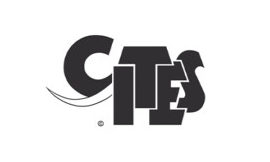
Convention on International Trade in Endangered Species of Wild Fauna and Flora (CITES)
CITES ensures that international trade in specimens of wild animals and plants – including some listed commercially exploited aquatic species – does not threaten their survival.
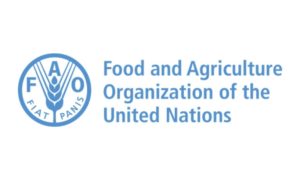
Food and Agriculture Organization Liaison Office in Geneva
The FAO Fisheries Division works to strengthen global governance and the managerial and technical capacities of members and to lead consensus-building towards improved conservation and utilization of aquatic resources.
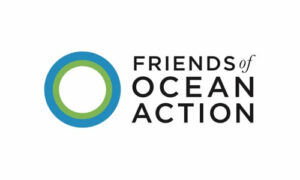
Friends of Ocean Action
Friends of Ocean Action is an informal group of businesses, civil society organizations, international organizations and scientific institutions, convened by the World Economic Forum, in collaboration with the World Resources Institute. The aim of the group is to fast-track solutions to the most pressing challenges facing the ocean.

International Institute for Sustainable Development
The IISD supports the current WTO negotiations to end harmful fisheries subsidies, recognizing the need to restore the sustainability of fish stocks while supporting livelihoods and food security.
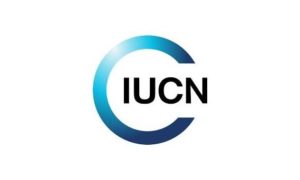
International Union for Conservation of Nature
IUCN engage in advocating international agreements and influencing policy for a sustainable management of fisheries and aquaculture worldwide.
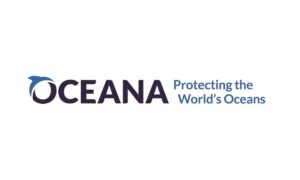
Oceana
Oceana works to reduce overfishing by advocating for science-based catch limits, reducing harmful fishing subsidies and stopping illegal, unreported and unregulated (IUU) fishing.
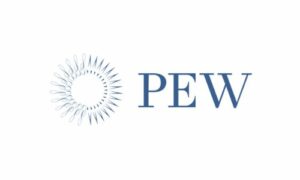
The Pew Charitable Trusts
The Pew Charitable Trusts is a global nongovernmental organization that seeks to improve public policy, inform the public, and invigorate civic life. Their project on “Reducing Harmful Fisheries Subsidies” focuses on providing data for better policy making to prevent overfishing.

The South Centre
The South Centre produces research and support developing countries to promote their interests in international negotiations, including those on fisheries subsidies at the WTO.

United Nations Conference on Trade and Development
UNCTAD supports developing countries and promotes sustainability, notably with regards to oceans economy. In collaboration with FAO and UNEP, UNCTAD developed a roadmap to end harmful fisheries subsidies.
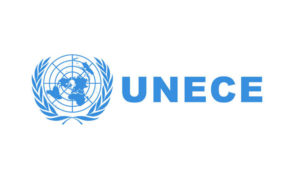
United Nations Economic Commission for Europe
In order to support global efforts to tackle overfishing, illegal, unreported and unregulated fishing, UNECE promotes and facilitates the implementation of sustainable fisheries standards on a global scale.
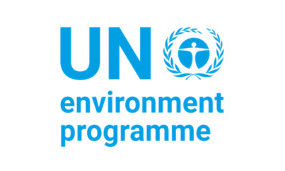
UNEP Environment and Trade Hub
UNEP Environment and Trade Hub in Geneva engages in global policy reform surrounding harmful fisheries subsidies.

World Economic Forum
The World Economic Forum, in collaboration with the World Resources Institute, convenes the Friends of Ocean Action, a coalition of leaders working together to protect the seas.
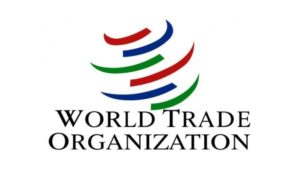
World Trade Organization (WTO)
As the only global international organization dealing with the rules of trade between nations, WTO is the stage of the negotiations on fisheries subsidies.
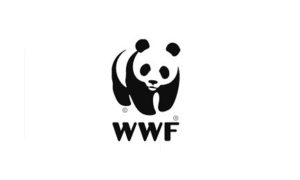
WWF International
As an independent conservation organization active in nearly 100 countries, WWF works to promote sustainable fishing practices for the benefit of nature and people.
GEN Events

New Disciplines on Fisheries Subsidies to Achieve SDG14 and Improve Ocean Governance
Geneva Blue Talks | 24 May 2022 | 15.00 – 16.30 CEST | International Environment House I, Room 3 & Online | Portugal, Kenya and GEN

